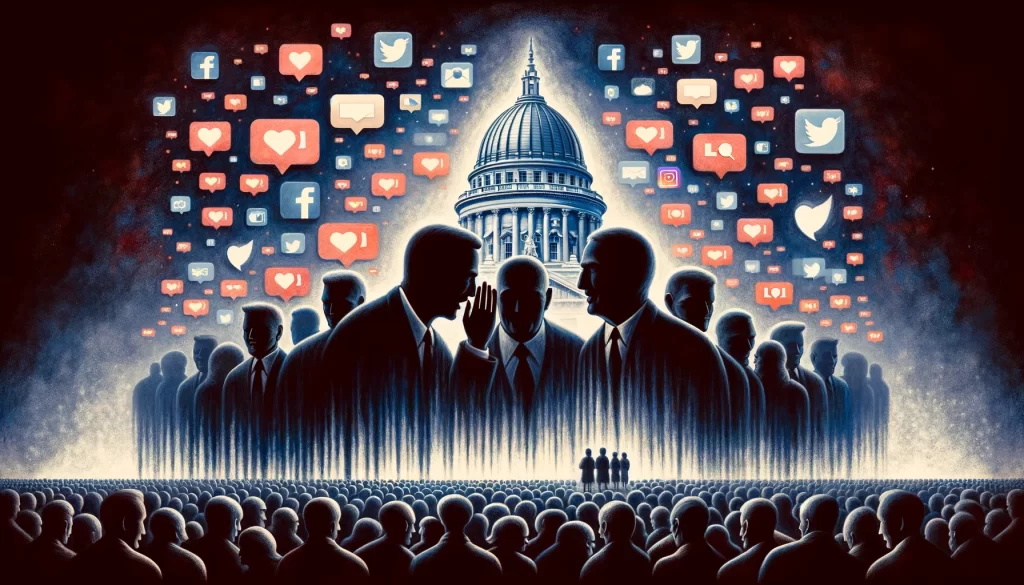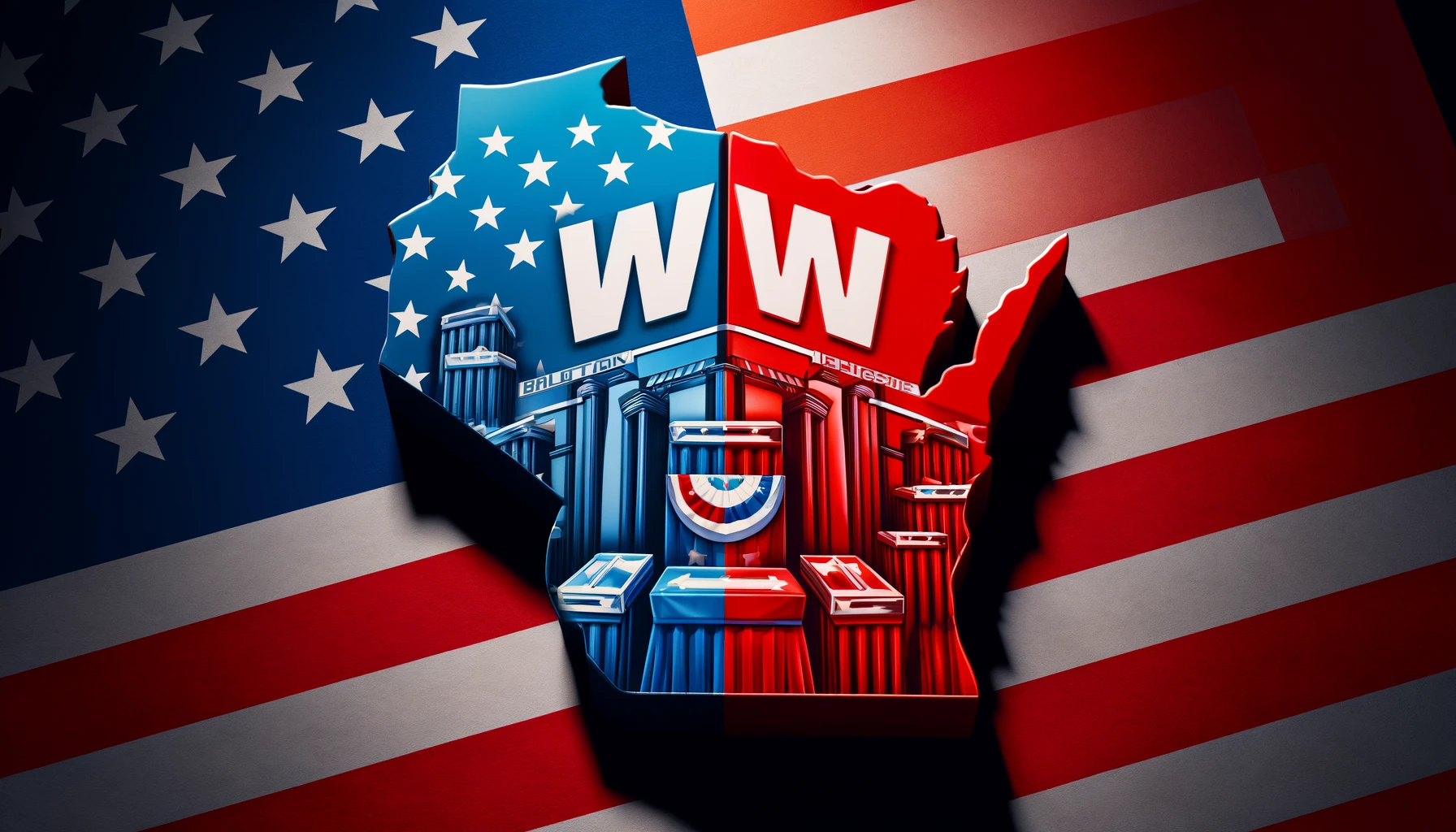Recently, the way elections are funded and conducted has become a hot-button issue. This became especially pronounced after the 2020 presidential election, when Facebook CEO Mark Zuckerberg and his wife, Priscilla Chan, donated nearly $420 million to two nonpartisan organizations. These organizations, the Center for Tech and Civic Life (CTCL) and the Center for Election Innovation & Research, aimed to support the administration of elections at local and state levels. However, this generous act was met with suspicion and criticism from some quarters, leading to a widespread political and legal battle over the role of private funding in elections.
The Wisconsin Ballot Initiative
In Wisconsin, a state known for its political battleground status, the debate culminated in a ballot initiative during the elections. Voters were asked whether they believed private funds should be allowed to support the administration of elections. This initiative, strongly supported by figures like former President Donald Trump and Republican lawmakers such as Reps. Bryan Steil of Wisconsin and Jim Jordan of Ohio, aimed to ban the use of private money in election administration.
Their support seemed to gain substantial traction, and the term ‘Zuckerbucks’ emerged, referring pejoratively to the donations made by Zuckerberg and Chan. This term became associated with conspiracy theories and misinformation, suggesting that the funds were intended to unduly influence the election in favor of the Democratic Party. These claims were part of a larger narrative, often referred to as the “Big Lie,” which falsely alleged widespread electoral fraud in the 2020 election.
The National Trend
Wisconsin’s initiative is not isolated. Across the United States, 27 states have enacted laws or ballot initiatives to regulate or outright ban private and philanthropic funding in elections. Such measures are seen by some as necessary to maintain the integrity and impartiality of electoral processes. However, others warn that these bans could strain already underfunded election offices, making it more difficult to conduct elections efficiently and securely.

The Real-World Consequences
The prohibition on private grants has left many election workers in a challenging position. Without these funds, local election offices struggle to afford necessary equipment, hire sufficient staff, and conduct voter outreach. This is particularly troubling as the need for secure and accessible elections has never been greater, amid rising threats and misinformation.
In Wisconsin, the impact of the ballot initiative is profound. Election officials, who once relied on grants from organizations like the CTCL to improve election security and accessibility, now face budget shortfalls and operational challenges. These challenges are not just bureaucratic; they directly affect voters’ ability to participate in the democratic process.
Despite the controversy, investigations and analyses have consistently debunked claims that private election funding unduly benefits one party over the other. A comprehensive review by the Federal Election Commission, along with numerous court decisions, found no evidence to support the idea that the donations influenced election outcomes in a partisan manner.
This article is based on the following article:

Background Information
By understanding these background elements, readers can better analyze and discuss the implications of the Wisconsin ballot initiative, the role of private funding in election administration, and the broader challenges facing American democracy.
Understanding Elections in the United States
- Election Administration: In the U.S., elections are primarily administered at the state and local level. This means that the rules and procedures can vary widely from one place to another. Local election officials are responsible for managing everything from voter registration to counting votes, often operating on tight budgets.
- Funding for Elections: Traditionally, funding for elections comes from state and local government budgets. However, election administration can be expensive, covering costs for voting machines, poll worker salaries, voter education campaigns, and security measures. In recent years, some election offices have sought additional funding from federal grants and private donations to cover these expenses.
The Role of Private Funding
- Private Donations: The involvement of private donations in public elections has been a point of contention. Supporters argue that private funding can help fill the gaps left by inadequate government funding, ensuring elections are secure and accessible. Critics, however, worry that accepting money from private individuals or organizations could lead to perceptions of bias or actual influence over the election process.
- “Zuckerbucks”: The term “Zuckerbucks” refers to the significant amount of money donated by Facebook CEO Mark Zuckerberg and his wife, Priscilla Chan, to non-profit organizations supporting election administration. While intended to help with the additional challenges posed by the COVID-19 pandemic, these donations were controversial and led to allegations of partisan influence, despite no evidence supporting such claims.
Misinformation and Its Effects
- Misinformation: False or misleading information spread deliberately or unintentionally can have a profound impact on public opinion and behavior. In the context of elections, misinformation about the fairness and integrity of the process can undermine trust in democratic institutions and influence policy debates.
- The “Big Lie”: This term refers to the false claims that the 2020 presidential election was stolen from former President Donald Trump. Despite extensive evidence to the contrary, including numerous court rulings and audits, these claims have persisted and fueled efforts to change election laws and policies.
The Legal and Political Landscape
- Election Laws and Reforms: Following the 2020 election, there has been a wave of proposed and enacted changes to election laws in states across the country. These changes often reflect deep political divisions, with debates focusing on issues like voter identification requirements, mail-in voting, and, as highlighted in the Wisconsin case, the use of private funding for election administration.
- Impact on Election Offices: Restrictions on private funding can have significant operational impacts on election offices, potentially affecting their ability to conduct elections efficiently and securely. This is a particular concern in an era where threats to election security are increasing, and the COVID-19 pandemic has introduced new challenges.
Wisconsin as a Case Study
- Wisconsin’s Political Climate: Wisconsin is a battleground state with a history of close elections and intense political debates. The decision to ban private funding in election administration reflects broader national tensions over election integrity and the influence of money in politics.
- Implications for Future Elections: The developments in Wisconsin may serve as a precedent for other states considering similar measures. The ongoing debate over private funding, coupled with the challenge of addressing misinformation, highlights the complex dynamics at play in ensuring the fairness and security of elections.

Debate/Essay Questions
- Should Private Funding in Election Administration Be Allowed?
- How Can Elections Be Made More Secure Without Private Funding?
- What Measures Can Be Taken to Ensure Transparency and Accountability in Election Funding and Administration?
Please subscribe to Insight Fortnight, our biweekly newsletter!
